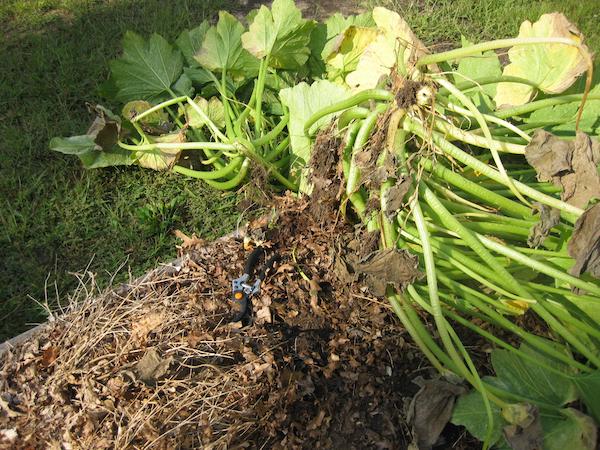Updated: October 27, 2020
At the end of the summer, I have a difficult decision to make. Should I pull out the summer plants and start the fall garden or keep harvesting the summer garden for a while longer?
While it’s true that many of the plants are past their prime, I’m a little too sentimental about them. After all, we’ve already had about a six month relationship.
So it takes some real will power to do the right thing.
Let’s take a sec to get the legal words out of the way. This article may contain affiliate links. That means if you click and buy from my partners, I will make a tiny amount of money at no cost to you. This in no way affects my recommendations.
It’s easy to start to feel a little too attached. That’s because you start your plants as babies and pick the best of the bunch and gingerly transplant them into your garden.
But the nurturing doesn’t end there. Next comes the watering, top dressing with compost, pruning and waiting patiently for fruit to ripen.
Once the fruit begin to ripen, there’s a flourish of production and harvesting.
And sometimes, in as little as two weeks, it’s over.
When you look at it considering the length of time, it hardly seems fair.
The promise of a second wind
Some vegetables are reinvigorated by the cooler of temperatures of fall. There is always the promise of a second wind.
Some, like green beans or June bearing strawberries or raspberries, actually get a second wind. But it’s usually not as much as the first wave.
In most cases, plants that are past their prime should be sent to the compost pile because it isn’t worth it.

Of course, it’s okay to keep less than productive plants around if you’re not planning on growing a fall garden or cover crop. But for the rest of us, it means valuable growing time lost.
Still, after having a plant around for as much as 180 days, I find it difficult to end the relationship.
Don’t even get me started talking about when farm animals are past their productive lives — that, of course, is even more difficult.
I even have difficulty taking out the zucchini when there are just a few fruit to harvest.
I have a special place in my heart for this year’s zucchini plants. I was able to keep them safe from squash borer.
Plus, they produced a ton. My fridge is full of zucchini. I have more than I could eat for weeks and weeks.
Related: Can You Plant Potatoes in Autumn?
Still, I found it very hard to remove the plants that have given me so much, even if I’m losing growing time for my fall lettuce.
I must admit, it isn’t just the super successful plants that I don’t want to give up on. I even find it hard to end the relationship when a plant does badly from the start.
I’ve got two pitiful eggplant plants in my garden right now that don’t even have any fruit on them. I know better than to keep them around, but lack the will power.
Summer mistakes, fall success
One of the key thoughts in Elliot Coleman’s book Four-Season Harvest is if a planting doesn’t work out, take it out, apply some compost and plant something else. Don’t fret about it.
Your only concern should be if there’s enough growing time before the frost. For Coleman, frost is almost never a concern even though his farm is in Maine. He uses unheated hoop houses to extend the growing season deep into the winter.
I’ve got to learn to fail faster. It sounds funny, but failing faster will help me grow more and better food. The premise is that one of the best ways to learn important lessons is to fail.
Strange as it may sound, the more you fail, the more you learn. The more you learn, the more success you will have.
Failing faster not only works in garden, but in the rest of life, too.
Related posts you might enjoy:
Suburban Hobby Farmer is a participant in the Amazon Services LLC Associates Program, an affiliate advertising program designed to provide a means for sites to earn advertising fees by advertising and linking to amazon.com.